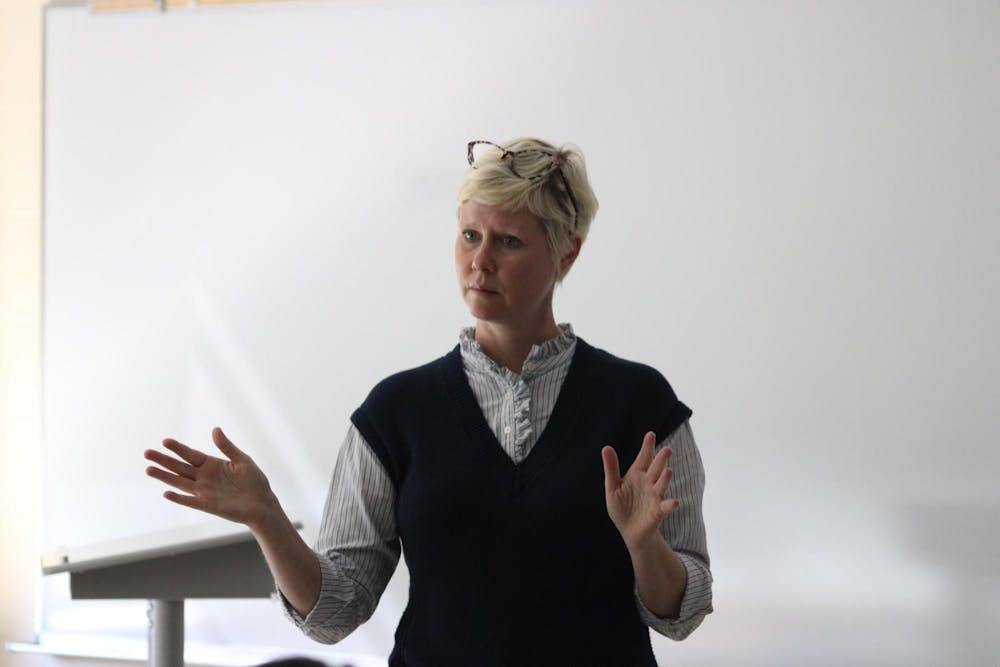The release of Large Language Models (LLMs) like ChatGPT, Gemini, and CoPilot, has shifted the goal posts in education: we now find ourselves needing to ask whether the entire project of education, as we know it, is necessary and sustainable: do we need teachers, or can LLMs replace them?; why write an essay if a machine can do it better?; why read a difficult text if a PDF viewer can summarize it in language a five-year old can understand?
In response, I want to offer some brief guidance in the form of two lists: five limitations of the technology and four questions to ask. These responses emerged out of many months of experimentation with and study of these tools both individually and in the company of other Taylor faculty, including Peter Staritz, associate professor of physics and engineering, Erik Hayes, professor of kinesiology, Mark Colgan, professor of mathematics, Amish Mishra, associate professor of mathematics, Stefen Brandle, professor of computer science and engineering, Kelli Cummings, assistant professor of english, and Katheryn Kelley, assistant professor of psychology, among others.
As I’ve experimented with and studied LLMs, I’ve observed several limitations:
1. The ethics of LLMs have not been fully litigated yet. Questions about where these companies get training data, how they use data, and what their business models are will need to work their way through the courts.
2. LLMs imitate human thought; they do not produce thought itself. Instead, these tools show us how machines interpret the nature of human knowledge-work and creativity.
3. Likewise, LLMs redefine creativity (as in art, music, film, literature, etc.): the more and the stranger the ideas, the more creative these tools must be. Humans have never measured creativity this way.
4. LLMs habituate us as machine-manipulators and users rather than idea-synthesizers or creators. As a result, we employ our thought-work in order to get the machine to do what we want, rather than using the machine to help us collect or store our own thought-work.
5. Many creators and owners of these tools have a utilitarian view of technology. This is not a mere interpretation of mine – this is expressed clearly in online biographies and manifestos. Find OpenAI founder Sam Altman’s blog post “What I Wish Someone Had Told Me” and give it a read sometime. Christians are not utilitarian in our view of the world. While we have the freedom to use what the world creates and find God’s truth wherever it may be found, we must do so wisely.
This is only a short list of the recognized problems and limitations of LLMs, but many are hopeful that this technology will improve and become more ethical. Whether the technology improves or not, we should ask several questions as we engage with these tools:
1. Dr. Hayes encourages his students to consider what they are becoming – to focus on the process, not the product. As you engage with these tools, ask: What am I becoming? What are these tools habituating me to be? Am I using these tools to produce something for my education, or is my use a key part of a learning process?
2. Education is a relational process, not a transactional one. LLMs are incapable of real relationality. Ask: is my use of this tool replacing my engagement with God and/or others?
3. Is the information I’m receiving accurate? Does it measure up with what the experts say? Are the referenced sources reputable websites or databases? Can I verify this information?
4. Is my use of these tools loving? That is, is your use of these tools honoring to yourself, your education, your professors, your classmates, and your Lord?
Finally, I encourage you, as I know my other faculty colleagues would as well, to continually weigh your technology use and to seek guidance. Above all, let us continue to cultivate a culture of trust among one another at Taylor, no matter what the challenge, and to faithfully seek God’s wisdom in all our work.




